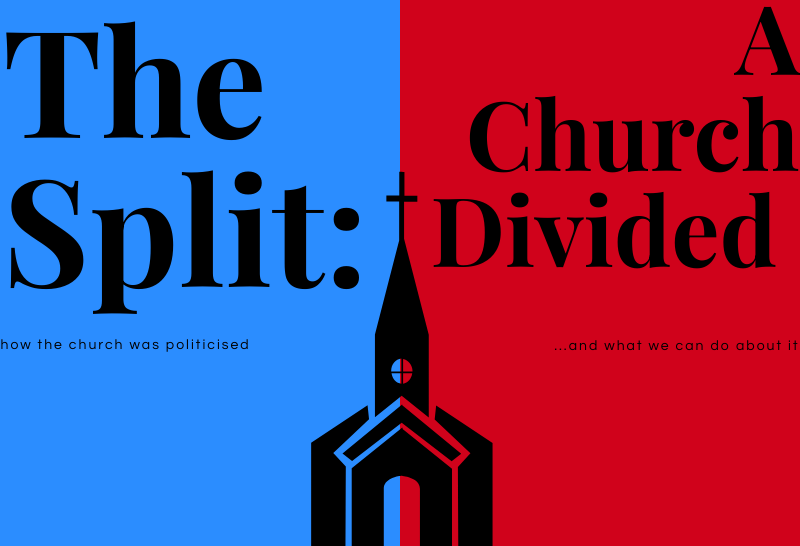Christianity isn’t a political party.
Stop treating it like one.
evangelical church of the 21st century.
For hundreds of years, the church and state have been tied at the hip to some degree. Spiritual organizations were able to influence certain political decisions and vice versa. There has been a natural balance between the two parties for centuries, with neither church or state overpowering the other. However, a recent imbalance has occurred. Instead of being two separate cooperating entities, churches are increasingly taking political sides on topics which are not necessarily politically oriented.
This disconnect between the evangelical church has never been more evident, and it is mostly due to the current political culture. As more and more churches are siding with different political parties and worldviews, the cracks between the church denominations and society as a whole grow even deeper. If not addressed, these cracks can eventually turn into complete disconnect and resentment.
With socio-political conflict becoming one of the most prominent topics of conversation, many churches began to speak on the topics in hopes of bringing a biblical perspective of these issues to their audiences. In direct correlation to this, different groups in these spiritual spaces revolted against those speaking, saying that their church leaders were pushing a certain agenda for the political party they may be affiliated with. Many pastors and other church officials were driven out of their workplaces through what Peter Wehner, an author from The Atlantic, quoted: “spiritual abuse and a toxic culture”.
After the presidential election of 2020 and the storming of the capital, this spiritual divide became even worse. Multiple churches began to preach to appease certain political parties while using the bible to validity their messages. Churches began to take the forms of cliques for each political party, with many only going to certain churches because they aligned with their own political beliefs. Unfortunately, political standing has become one of if not the defining factor christians use to choose their church, bible studies, and so on.
A pastor at Riverside Church, Dr. Zach Eswine, said as such in a sermon a couple months back. He explained that those he interviewed who wished to enter the church had not asked him questions on spiritual beliefs, but rather political standing on different social conflicts that were the most relevant at the times of the interviews.
This politics oriented approach on spirituality can not only harm those within the church, but also those not connected to the church but still connected to certain political parties or social groups. Like the attempted coup at the capital, many church goers took to the streets to protest against certain political conflicts from a “biblical perspective” in order to create “positive change”. This continues to grow worse as more socio-political issues are brought to the forefront of political discussion.
Politicized churches and the topics they choose to promote or tear down are doing nothing to encourage spiritual understanding and unity, but rather they are pushing society away and gatekeeping the faith for certain political parties. Unless this political take over can be slowed and stopped, the evangelical church may remain divided forever.
Instead of advancing this spiritually toxic culture, there must be a reckoning within the church to bring awareness to the danger within the current spiritual culture. However, even if each denomination becomes aware of the issue at hand, change will require a change of mindset for all those involved with the church.
Overall, it will require a drastic change in mentality towards spirituality and the teachings that most have become indoctrinated by. Unfortunately, there is not much hope for this to occur. Between raging political debates and immoral preaching, many are much too attached to this “spiritual” lifestyle. However, even if those within these communities refuse to change it, there will be people within the church who do wish to change the issue. It is the responsibility of the church to bolster these voices and make sure they are recognised, heard, and acted upon. Only then will there be opportunity for change, and only then will the church have a chance of being reunited for the church’s original means for existence, which is to gather a community of like minded believers to worship, pray, and learn about the true biblical truths of the christian faith.




